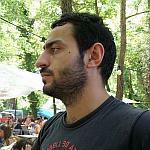Uras describes privatisation as follows: "While new areas for capital accumulation are created, unemployment and poverty increase and resources are depleted. The private sector takes over public property, channels investments into the military sector, and attempts to appear dynamic".
Should Uras be voted into parliament, he commits himself to protecting the public good, and renationalising privatised goods and services.
Uras points to the common misconception that a change in government would lead to a change in privatisation policy. He argues that Turkey's mainstream parties do not differ in their acceptance of the IMF programme.
Demirci: Turkey world leader in privatisation
According to the Vice-president of the Department for Privatisation, Osman Demirci, the World Bank has declared that Turkey's 18 billion-dollar privatisation agenda during the last four years is the highest internationally.
Demirci predicts that there will be increased privatisation in the energy and transport sectors, the latter including the privatisation of roads and bridges, and new road building contracts.
Human disaster
Dr. Konukman says that typical results of privatisation are unemployment and a commercialisation of sectors which are the responsibility of a social state, such as education and health. This, he says, results in "human disaster".
He points out that Turkey ranks 92nd in the UN's Human Development Index. He adds that recent research has shown that privatisation does not necessarily result in increased efficiency and that property should remain public.
Local or foreign makes no difference
Both Konukman and Uras criticise the attitude which rejects "foreign investment" but welcomes "local capital".
Uras says that "capital has no country, religion or belief. The priority is profit maximisation." (TK/AG)




